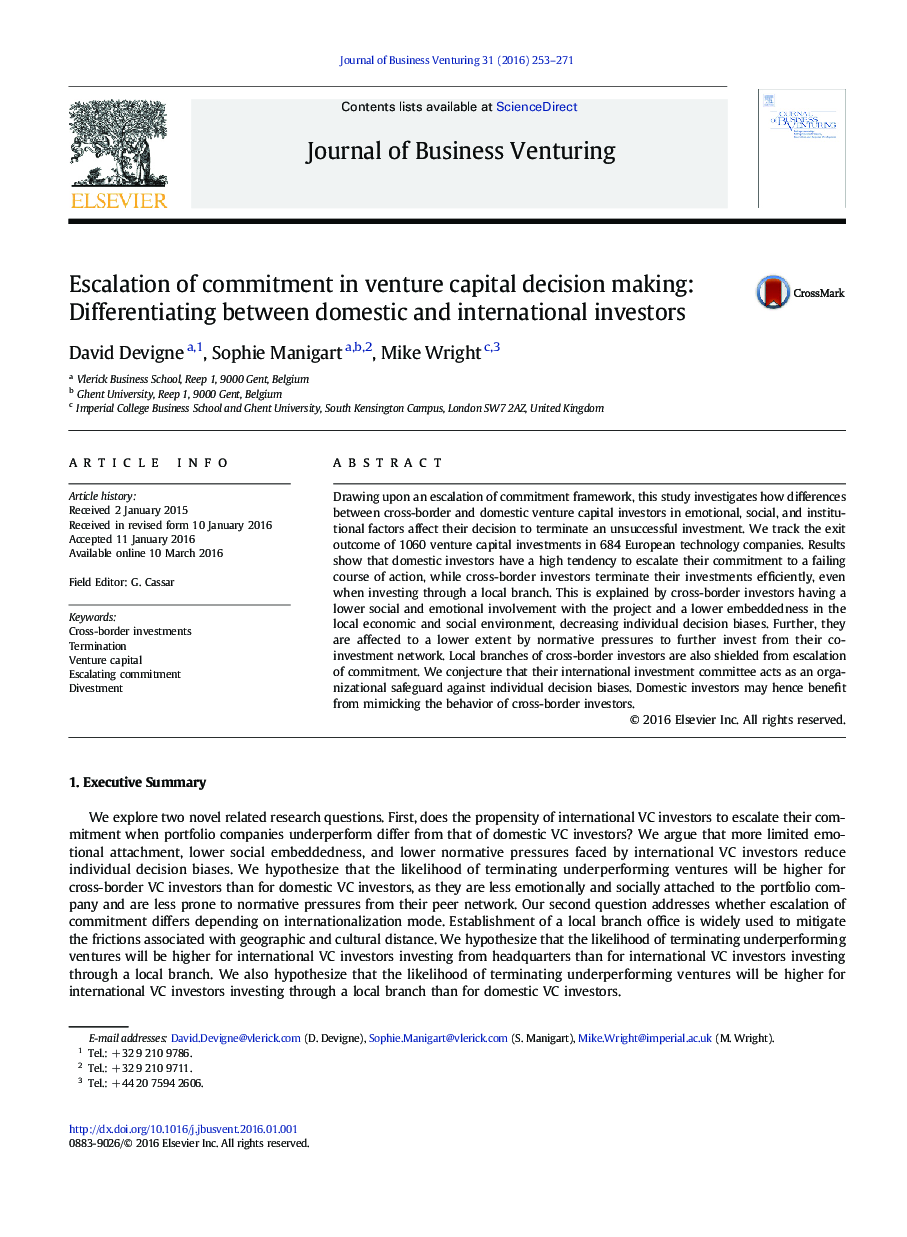| Article ID | Journal | Published Year | Pages | File Type |
|---|---|---|---|---|
| 1019302 | Journal of Business Venturing | 2016 | 19 Pages |
•VCs investing across borders escalate their commitment less than domestic VCs.•Lower emotional and social attachment and lower normative pressures protect them.•International VCs investing through local branch act more as cross-border investors.•Results are supported in 1618 VC rounds in 684 European ventures.
Drawing upon an escalation of commitment framework, this study investigates how differences between cross-border and domestic venture capital investors in emotional, social, and institutional factors affect their decision to terminate an unsuccessful investment. We track the exit outcome of 1060 venture capital investments in 684 European technology companies. Results show that domestic investors have a high tendency to escalate their commitment to a failing course of action, while cross-border investors terminate their investments efficiently, even when investing through a local branch. This is explained by cross-border investors having a lower social and emotional involvement with the project and a lower embeddedness in the local economic and social environment, decreasing individual decision biases. Further, they are affected to a lower extent by normative pressures to further invest from their co-investment network. Local branches of cross-border investors are also shielded from escalation of commitment. We conjecture that their international investment committee acts as an organizational safeguard against individual decision biases. Domestic investors may hence benefit from mimicking the behavior of cross-border investors.
